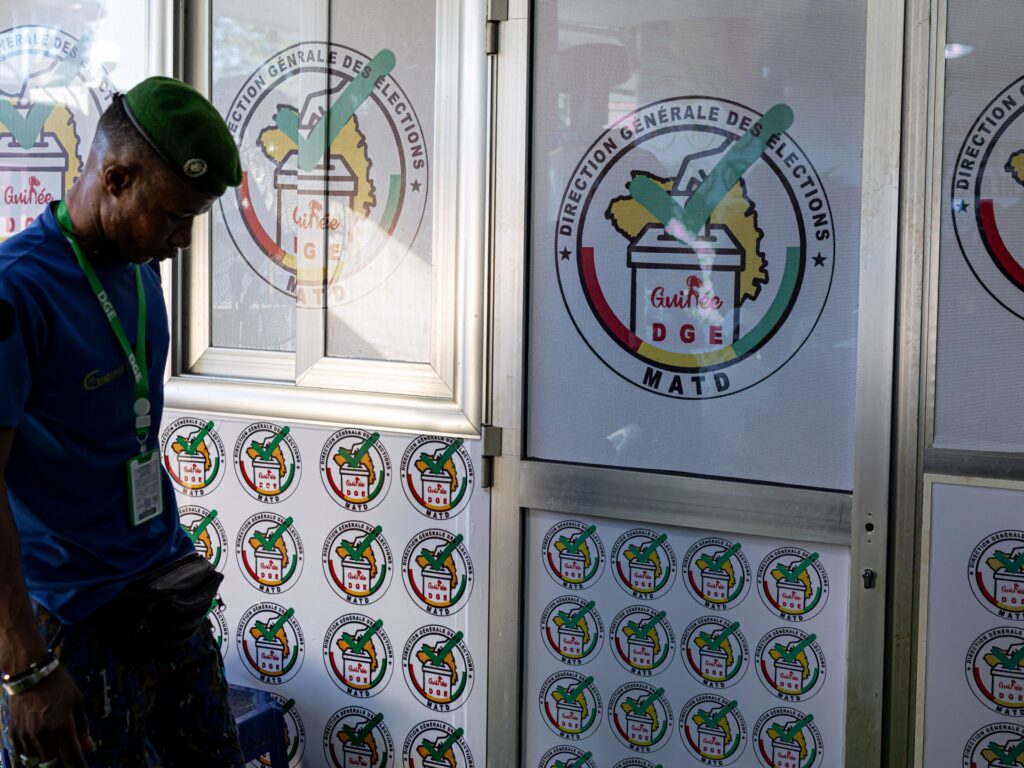Presidential election is currently expected to take place in December.
Published On 23 Sep 2025
Voters in Guinea have overwhelmingly backed a new constitution that could allow coup leader Mamady Doumbouya to run for president if he chooses to, according to partial results.
The constitution looked set to pass with 90.6 percent votes in favour and 9.4 percent against, the head of Guinea’s General Directorate of Elections, Djenabou Toure, told reporters late on Monday. Those figures were based on 91 percent of the votes cast in Sunday’s referendum.
Recommended Stories
list of 3 itemsend of list
An overall figure for voter turnout was not available, but officials had counted more than 4.8 million votes out of more than 6.6 million registered voters, meaning turnout had exceeded 70 percent.
Critics called the results a power grab, but the military government said the referendum paves the way for a return to civilian rule. The presidential election is currently expected to take place in December.
Reporting from the capital, Conakry, Al Jazeera’s Ahmed Idris said members of the opposition were opposed to the referendum.
“The elections were held all across Guinea with no incidents at all – 45,000 security forces were deployed. … The opposition said this is a way of harassing the voters,” he said.
Presidential election
Doumbouya, a 40-year-old former member of the French Foreign Legion, voted along with his wife at a health centre in Conakry, wearing sunglasses and a baseball cap with a drawing of a traditional mask symbolising fertility.
He seized power in Guinea, home to the world’s largest reserves of bauxite, in 2021. It was part of a wave of eight coups that swept West and Central Africa from 2020 to 2023.
A charter adopted after the coup barred members of the transitional government from seeking office. But that language was not included in the constitution put to voters on Sunday.
Doumbouya has not said yet whether he intends to run for office.
The country’s two main opposition leaders, Cellou Dalein Diallo and deposed former President Alpha Conde, are among those who called for a boycott of the referendum.
Their political parties are currently suspended, and Human Rights Watch has accused the government of disappearing political opponents and arbitrarily suspending media outlets.
The government has denied any role in disappearances but has promised to investigate such allegations.

